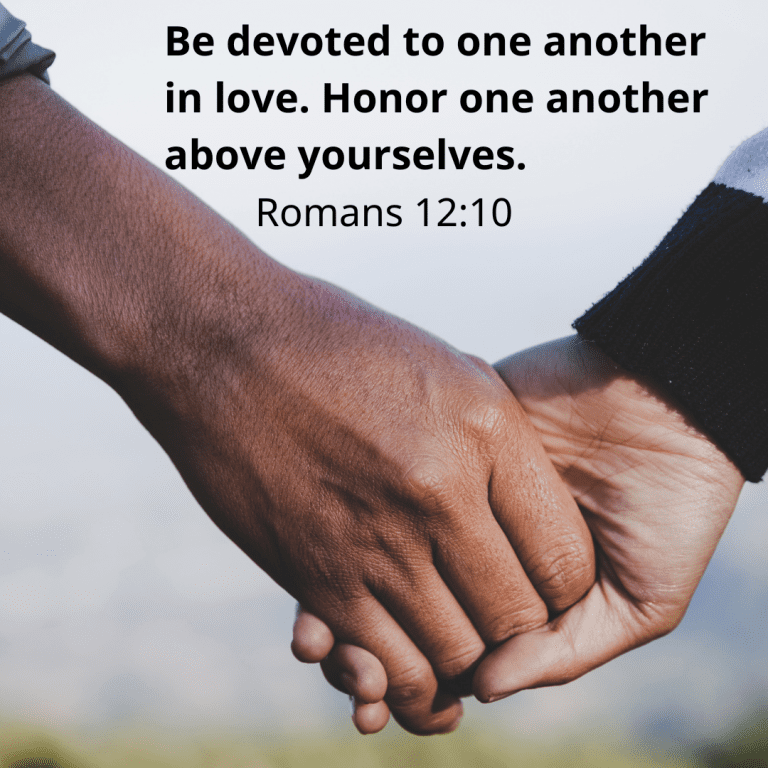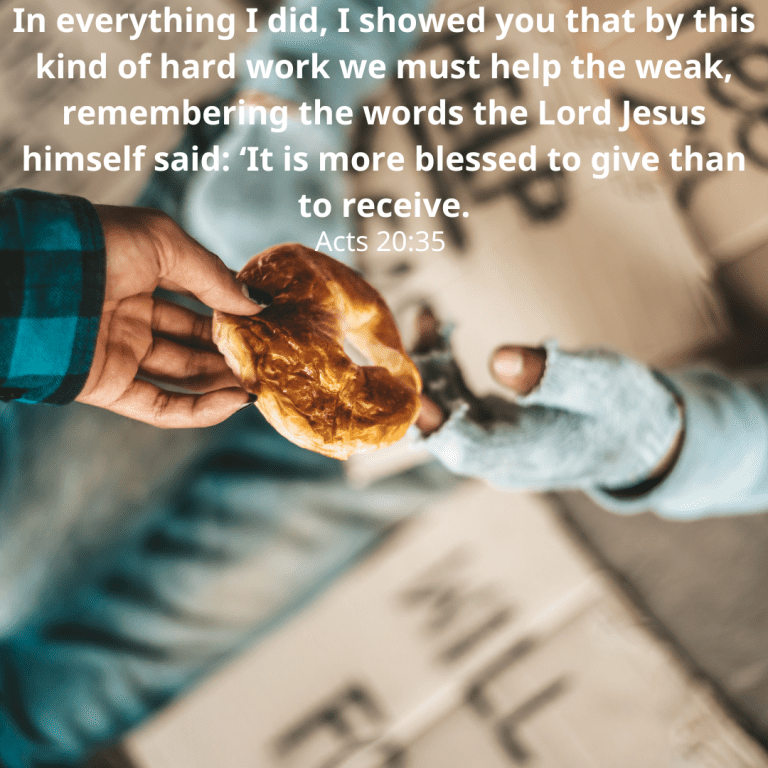Mǝthǝl kwǝthi kwɔr kwugwuuthu ŋwɔɔla.
(Mɔrgus 4:1-9Luuga 8:4-8)1 Ki-laamin-la ṯǝ kila nǝ Yǝcu ruuthǝ dɔɔnɔ nɔŋweele bahara kǝni nɔŋgwɔ naanalɔ ethaari @allima. 2 Nǝ ŋwɔdɔŋw ŋwittǝzir attathi naana, mindaŋ nɔŋw ɔɽi ki-mɔrkǝb-nǝ nɔŋgwɔ naanalɔ kinaŋw, mindaŋ nǝ lizi rilli tatap nḏɔṯɔma kǝni. 3 Mindaŋ nɔŋwsi andaci kwomne kwittǝzir mǝthǝl-gi, nɔŋwsǝccǝŋw, “Kwɔr kwɔnaanɔ kwette kwuruuthu etheele ethi kwɔɔtha. 4 Nǝ mɔŋw kwee tǝ, nǝ ŋwɔɔla iidi ŋwokwo ki-thaay-la, mindaŋ nǝ ndǝw iila nǝrsi ɔṯanni kworo. 5 Nǝ ŋwɔɔla ŋwɔthaathɔ iidi ŋwiiɽi-na kǝzir witi Wǝthi wurǝyuŋi wuuru mac, nǝr dallithanna fittak, kaka-niti nithiiŋǝ-gwɔ wurǝyu-nǝ mac. 6 Mindaŋ mǝ aaŋwɔn allitha, nǝr ai naana, nǝ kaka niti nɔɔɽasar-gwɔ rɔvɔɔ lac-lac mac, nǝr ǝrmi. 7 Nǝ ŋwɔthaathɔ ndi ki-yuugwi-nǝ mindaŋ nǝ yuugwi diiɽǝ mǝr peŋe, nǝrsi firttaŋ. 8 Nǝ ŋwɔthaathɔ nǝr iidi ki-wurǝyu-nǝ wisaaw, mindaŋ nǝr riiɽi yǝy yisaaw ŋwokwo ruɽi-ṯɔthni, ŋwokwo ruɽi-ṯoɽol, nǝ ŋwokwo ṯuɽi-wrii. 9 Kwǝthi yǝni yǝthi-yi neŋne ethɔŋw neŋne.”
Sǝbǝb kwǝthi amthaal.
(Mɔrgus 4:10-12Luuga 8:9-10)10 Kwaathan tǝ nǝ ṯalaamiiz iila naanɔ-ŋgwɔ nǝrǝccǝŋw, “Lotho landica-ŋǝsi amthaal-yi?” 11 Nɔŋwsi ǝŋnici nɔŋwsǝccǝŋw, “Ŋaaŋa lir linḏǝthǝrsi ŋɔma ethelŋe ŋejmethi ŋǝthi Ŋeeleny ŋǝthi ki-leere-naŋw, laakin ŋundu-ŋǝ tǝ, nǝrseere inḏǝtbǝ mac. 12 Ŋgwa kwǝthi ǝrgwɔ kiɽǝcǝsi-lǝ mindaŋ ŋwuuri, nǝ ŋgwa kwiti kwǝthi mac ǝrisi ǝpnnǝthǝ kinya nyǝthiŋwsi. 13 Ŋindǝrṯǝ ŋɔ ŋǝvricǝ-nyii ethisi andaci amthaal-yi, kaka nǝṯir-gwɔ iccithi, laakin ǝṯireere ese mac, ǝṯir keṯṯe yǝni, laakin ǝṯireere neŋne mac, waia ethisi elŋe. 14 Nǝr rattathi ŋandisasi Isha@ya ŋǝni ŋeeŋen, ŋaarɔŋw-ŋiŋw, ‘Lizi kɔlɔ linḏi ethi kette yǝni dooɽǝ, nǝ ǝrseere elŋe too, nǝ ǝri iccithi dooɽǝ, laakin ǝreere ese ǝzir ḏuṯ. 15 Kaka mǝgwɔ rɔgwor rǝthi lizi kɔlɔ ɔnḏi nǝr lǝŋthǝnni yǝni yeeŋen, nǝr mithǝ yǝy yeeŋen, mindaŋ ethiyeere iisithi mac, mindaŋ ethi neŋne yǝni-yi yeeŋen, nǝ ethisi elŋe rɔgwor-ri reeŋen tok, mindaŋ ǝŋgir urlǝ rɔgwor-lɔ, mindaŋ ǝŋgi-nyji sǝwi’. 16 Laakin ŋaaŋa tǝ, a laamina kaka nǝṯi-gwɔ yǝy yaaṯǝ iisithi, nǝ yǝni yaalɔ ǝtir neŋne tok. 17 Nyii kwǝccǝ-ŋǝsi-mǝ ŋwɔ rerrem, liɽii-ŋa lizi-li lɔvthanna luuru, lǝthi sɔɔrɔma beṯṯen etheese ŋgwa kwiisa-ŋa, laakin nǝr ulǝsi abariya; nǝ ethi neŋne tok ŋgwa kwǝṯi neŋne laakin nǝr ulǝsi abariya.
Yǝcu nuppǝ-ŋgwu mǝthǝlǝ-nǝ kwǝthi kwɔr kwugwuuthu ŋwɔɔla.
(Mɔrgus 4:13-20Luuga 8:11-15)18 “Niŋnar-ṯi ŋiɽaŋali ŋǝthi ŋgwa kwugwuuthu ŋwɔɔla. 19 Mɔŋw neŋne kweere ŋiɽaŋali ŋǝthi Ŋeeleny mindaŋ mɔŋwseere elŋe mac tǝ, nɔŋwaaɽanni ŋwɔɔla ŋwa ŋwiidu ki-thaay-la, mindaŋ nǝ Ibliis iila nɔŋwsi dimmǝthǝ kithaay ŋwa ŋwɔgwɔɔthɔna ki-ṯɔgwor-na ṯuuŋwun. 20 Nǝ ŋwa ŋwɔgwɔɔthɔna ki-ŋwiiɽi-na, ŋwaaɽinna ŋgwa kwǝṯi neŋne ŋiɽaŋali, ǝṯɔŋwsi mithǝ kwinyiŋlana; 21 laakin ǝtireere ɔɽi lac-lac duŋgwun-nǝ mac, ǝtireere nanni tɔttɔṯ mac, mindaŋ mǝ ṯurvǝ ǝnḏithǝ, mǝr ǝwɽi yǝy-lɔ sǝbǝb-gi kwǝthi ŋiɽaŋal ŋǝthi Ŋeeleny, mindaŋ ǝṯɔŋw ṯɔgdanni ǝṯɔŋwsi duŋgwǝci. 22 Nǝ ŋwa ŋwɔgwɔɔthɔna ki-yuugwi-nǝ, nǝraaɽanni ŋgwa kwǝṯi neŋne ŋiɽaŋali laakin eṯi ṯimiidatha ṯǝthi ṯurmun-nǝ, nǝ ṯamɽa ṯǝthi ŋɔrṯɔ, ǝtir firttaŋ ŋiɽaŋali, mindaŋ ǝṯireere riiɽi mac. 23 Nǝ ŋwa ŋwɔgwɔɔthɔna ki-wurǝyu-nǝ wisaaw, nǝraaɽanni ŋgwa kwǝṯi neŋne ŋiŋaŋali, mindaŋ ǝṯɔŋwsi elŋe tok, kwunder-ṯǝ kwǝṯi riiɽi ŋwɔɔla ŋwir kaka ruɽi-ṯɔthni, ruɽi-ṯoɽol, nǝ ṯuɽi-wrii.”
Mǝthǝl kwǝthi aaḏaar.
24 Nǝsi Yǝcu andaci mǝthǝlǝ ŋgwɔ nɔŋwsǝccǝŋw, “Ŋeeleny ŋǝthi ki-leere-naŋw ŋaaɽinna kwɔɔrɔ kwugwuuthu ŋwɔɔla ŋwisaaw ki-thɔrɔny-na ṯuuŋwun. 25 Nǝ kulŋǝ kette ninḏirɔ lizi tatap, nǝ kwuwǝzǝ ŋunduŋw iila nɔŋw ǝwthinici aadaara-lɔ ŋwan-na mindaŋ nɔŋwaaɽi nyettec. 26 Mǝr allitha mindaŋ mǝr riiɽi, nǝ aaḏaar elŋethine tok. 27 Nǝ yadaam iila naanɔ-gwɔ kwɔr kwǝthi dɔɔnɔŋw, nǝrǝccǝŋw, ‘Yaa sǝyyiḏ, naa a kwugwmuthi ŋwɔɔla ŋwiccaw ki-thɔrɔny-na ṯɔɔŋwa, e-ta aaḏaar windi ṯaka-ŋgi?’ 28 Nɔŋwsi ǝŋnici nɔŋwsǝccǝŋw, ‘Ŋgwa kwuwǝzǝ-nyii kwundǝr kwǝrrǝsi ŋɔ’. Nǝ yaḏaam ǝŋnici nǝrǝccǝŋw, ‘E-ta a kwɔnaŋna-nyji etheele ethi’ allilla-na?’ 29 Nɔŋwsi ǝŋnici nɔŋwsǝccǝnw, ‘Bǝri-mǝ mallillana-tǝ a ɔrnasi ŋwaana kǝzir weere ǝsi allathalɔ tok. 30 Duŋgwǝcǝr ŋwaana-ŋwɔsi aadaar-yi ethi diiɽǝthisi cerge-cergec mindaŋ mǝ lɔɔmɔr iila lǝthi ṯɔɔna. E-ta nyjandaci kila lɔɔnɔ ethi ɔɔni aaḏaara kerreny ǝri kǝkki ŋwɔdɔŋw, mindaŋ ǝri dɔnni kithaay. E-ta ǝrimǝ firṯatha ŋwaana ki-tuuluŋ-nǝ ṯiinyi’.”
Mǝthǝl kwǝthi lɔɔla lǝthi kwatta.
(Mɔrgus 4:30-32Luuga 13:18-19)31 Nǝsi Yǝcu andaci mǝthǝlǝ kwette kwokwony nɔŋwsǝccǝŋw, “Ŋeeleny ŋǝthi ki-leere-naŋw ŋaaɽinna lɔɔla lette lǝthi kwatta, lidimmǝ kwɔr kwette nɔŋw kwee ki-thɔrɔny-na ṯuuŋwun; 32 nɔŋworo lɔɔla lette lokwɔṯoc ki-ŋwɔɔla-la tatap, mindaŋ mɔŋw allitha, ǝṯɔŋw ṯamthɔ yaaɽi-la tatap, mindaŋ mɔŋworo kwaaɽi ta, ǝṯimǝ ndǝw iila ǝtir-gwɔ kette yɔɽɔɔ ki-ril-la ruuŋwun.”
Mǝthǝl kwǝthi khamiira.
(Luuga 13:20-21)33 Nɔŋwsi andaci mǝthǝlǝ kwette kwokwony, nɔŋwsǝccǝŋw, “Ŋeeleny ŋǝthi ki-leere-naŋw ŋaaɽinna khamiira kidimmǝ kwaaw nɔŋw-ŋgi uthǝthǝ yiilǝ yir lisǝfiyǝ ndǝn, mindaŋ nǝr ole tatap.”
Sǝbǝb kwǝṯi-gi Yǝcu andasi amthaal-yi.
(Mɔrgus 4:33-34)34 Ŋɔ tatap ŋǝtisi Yǝcu andaɔi ŋwɔdɔŋw tatap, ǝṯɔŋwseere andaci domony mac ŋiira amthaala-na. 35 Ethi rattathi ŋandisasi kwiɽii ŋaarɔŋw-ŋiŋw, “Minyeele ethisi andaci nyjandaci amthaal-yi nyji liŋthini kwomne ŋgwa kwuluccunǝ kinaŋw tuk nigittina-gwɔ ṯurmun-lɔ kwon-kwon.”
Yǝcu mɔŋgwɔ uppuci lizi mǝthǝlǝ-nǝ kwǝthi aaḏaar.
36 Ŋwɔṯaŋw nǝ Yǝcu ṯayya ŋwɔdɔŋw-lɔ nɔŋw ǝnḏi dɔɔnɔ. E-ta nǝ ṯalaamiiz ṯuuŋwun iila naanɔ-ŋgwɔ nǝrǝccǝŋw, “Uppucǝ-nyji-ṯi mǝthǝlǝ-nǝ kwǝthi aaḏaar wɔnaanɔ ki-thɔrɔny-na.” 37 Nɔŋwsi ǝŋnici nɔŋwsǝccǝŋw, “Ŋgwa kwugwuuthu ŋwɔɔla ŋwisaaw, nǝ Tɔr oro ṯǝthi Kwizigwunǝŋ, 38 nǝ wuthǝr oro wir ṯurmun, nǝ ŋwɔɔla ŋwisaaw, nǝroro nyɔr nyǝthi Ŋeeleny; nǝ aaḏaar oro nyɔr nyǝthi ŋgwa kwǝni Ibliis, 39 nǝ ŋgwa kwir ṯuwǝn kwugwuuthusi, nǝ Ibliis oro; nǝ ṯɔɔna oro lɔɔmɔr lirimthithɔ, nǝ kila lɔɔnɔ nǝ limeleka oro. 40 Kaka nǝṯir-gwɔ kǝkki aaḏaara dɔŋw mindaŋ ǝtir dɔnni kithaay, ǝri-ṯǝ oroŋw tok ki-lɔɔmɔr lǝthi kwaathan-ŋwɔ 41 A Tɔr ṯǝthi kwizigwunǝŋ ɔɔsi limeleka luuŋwun ethi ɔṯi lizi-nǝ ki Ŋeeleny-na ŋuuŋun kila tatap lǝṯi ṯɔkwɔkwɔdasi lizi ethi ǝrri ŋikiyaŋi, nǝ ŋa tatap ŋigii, 42 mindaŋ mǝrsi kaṯṯɔ kiigǝ-nǝ wɔppa wimni, ǝrgwɔ aari ǝri yee yiŋath-na tok. 43 Nǝ kila lɔvthanna ǝri ertelɔ fɔɔri-gi kaka aaŋwɔn ki Ŋeeleny-na ŋǝthi Ṯǝrnyin ṯeeŋen. Kwǝthi yǝni yǝthi-yi neŋne ethɔŋw neŋne.
Mǝthǝl kwǝthi ŋɔrṯɔ ŋuluccunǝ.
44 “Nǝ Ŋeeleny ŋǝthi ki-leere-naŋw aaɽanni kwomne kwette kwir ghaali kwuluccunǝ ki-thɔrɔny-na, kwinḏa kwɔr kwette mindaŋ nɔŋw arṯatha ŋaanya kii; nɔŋw-ŋgi aamina beṯṯen, mindaŋ nɔŋweele nɔŋw liṯṯa kwomne kwuuŋwun tatap kwǝthiŋw, mindaŋ nɔŋw-ŋgaaɽi nɔŋw iila ṯɔrɔny kitha.
Mǝthǝl kwǝthi lu-u-lu-u.
45 “Nǝ kwokwony, nǝ Ŋeeleny ŋǝthi ki-leere-naŋw aaɽanni taajira tǝti naŋninni lu-u-lu-a-lɔ lir ghaali; 46 mindaŋ mɔŋw kaṯṯasi kila lithǝmthi-lǝ beṯṯen, nɔŋwaaɽi nɔŋw liṯṯa kwomne kwuuŋwun tatap, kwǝthiŋw, mindaŋ nɔŋw iila lu-u-lu-a kila.
Mǝthǝl kwǝthi diivǝ kwǝthi lɔm.
47 “Nǝrṯǝ oroŋw kwokwony, nǝ Ŋeeleny ŋǝthi ki-leere-naŋw aaɽanni diivǝ kwukǝtir ki-bahar-na nɔŋw luuvǝzǝ lɔmi tatap ŋwɔɔla-ŋwɔɔla; 48 mindaŋ mɔŋw urǝnni deddep, nǝ lɔr mɔltha nǝr allisalɔ ki-nḏɔṯṯɔm, mindaŋ nǝr naanalɔ, nǝrsi ɔṯatha kila lisaaw ki-luuvǝ-nǝ, nǝ ligii nǝrsi kaṯṯɔ kithaay. 49 Ŋinḏi-ṯǝ ethoroŋw tok ki-lɔɔmɔr-la linḏi ethi ernene. A limeleka iila ǝri ruu lizi-nǝ kila ligii ki-lizi-nǝ lisaaw; 50 mindaŋ ǝrsi kaṯṯɔ kiigǝ-nǝ wɔppa; ǝgwɔ lizi aari ǝri yee yiŋath-na.”
Kwomne kwiyaŋ nǝ kwɔɔɽɔn.
51 Nǝsi Yǝcu ǝccǝŋw, “Ŋimǝsi elŋe ŋɔ tatǝp-a?” Nǝr ǝŋnici nǝrǝccǝŋw, “Aw.” 52 Nɔŋwsǝccǝŋw, “Kweere nyithak kwir mɔ@allim kwǝthi Sherii@a mɔŋworo ṯilmiiz ŋǝthi Ŋeeleny ŋǝthi ki-leere-naŋw, ŋwaaɽanni kwɔɔrɔ kwǝthi dɔɔnɔŋw, kwurwǝ ŋɔrtɔwa ŋuuŋun kithaay ŋiyaŋ nǝ ŋɔɔɽɔn tok.”
Yǝcu mǝr-gwɔ dirnathalɔ Naasira-na.
(Mɔrgus 6:1-6Luuga 4:16-30)53 Mǝ Yǝcu ṯimmasi amthaala wɔ, nɔŋw ɔrlacci ǝzir wa ŋwɔḏoŋw, 54 mɔŋw iila ki-bǝlǝḏ kwuuŋwun nɔŋwsi ǝccǝ @allima ki-majma@-na kweeŋen, nǝr liŋɽi nǝraarɔŋw, “Kwaava-thi ṯǝthinǝ yǝnǝ kɔthɔ ṯaka ŋilim-ŋi ŋɔppa-ŋɔppa ŋǝṯɔŋwsi ǝrri? 55 Kwiti kwundǝr-ṯǝ ŋgwɔ kwir tɔr ṯǝthi najjaar mac-a? Lǝnyin kwiṯi kwir kwǝni Mǝryǝm mac-a? Liyeŋgen liti lir lǝni Ya@guub-ŋǝ Yuusuf-gi, nǝ Sim@aan-ŋǝ Yahuuthǝ-gi mac-a? 56 Liyeŋgen lir nyiira liṯi linannir-li kɔnɔŋw mac-a? E-ta kwaava-thi ŋiɽaŋali ŋɔ ṯaka?” 57 Nǝr urǝzi rɔgwori. Nǝsi Yǝcu ǝccǝŋw, “Kwiɽii kw-dr ǝnyjiki-lɔɔɽɔ-na kǝzir wette nyithak illi ki-bǝlǝḏ-nǝ kwuuŋwun lizi-li lǝthi dɔɔnɔ kwuuŋwun.” 58 Kaka niti nǝthir-gwɔ ṯǝmminǝ mac, mindaŋ nɔŋweere ǝrri ŋilima ŋuuru kinaŋw mac.
The Parable of the Sower
(Mark 4.1-9Luke 8.4-8)1 That same day Jesus left the house and went to the lakeside, where he sat down to teach. 2 The crowd that gathered around him was so large that he got into a boat and sat in it, while the crowd stood on the shore. 3 He used parables to tell them many things.
“Once there was a man who went out to sow grain. 4 As he scattered the seed in the field, some of it fell along the path, and the birds came and ate it up. 5 Some of it fell on rocky ground, where there was little soil. The seeds soon sprouted, because the soil wasn't deep. 6 But when the sun came up, it burned the young plants; and because the roots had not grown deep enough, the plants soon dried up. 7 Some of the seed fell among thorn bushes, which grew up and choked the plants. 8 But some seeds fell in good soil, and the plants bore grain: some had one hundred grains, others sixty, and others thirty.”
9 And Jesus concluded, “Listen, then, if you have ears!”
The Purpose of the Parables
(Mark 4.10-12Luke 8.9Luke 10)10 Then the disciples came to Jesus and asked him, “Why do you use parables when you talk to the people?”
11 Jesus answered, “The knowledge about the secrets of the Kingdom of heaven has been given to you, but not to them. 12 For the person who has something will be given more, so that he will have more than enough; but the person who has nothing will have taken away from him even the little he has. 13 The reason I use parables in talking to them is that they look, but do not see, and they listen, but do not hear or understand. 14 So the prophecy of Isaiah applies to them:
‘This people will listen and listen, but not understand;
they will look and look, but not see,
15 because their minds are dull,
and they have stopped up their ears
and have closed their eyes.
Otherwise, their eyes would see,
their ears would hear,
their minds would understand,
and they would turn to me, says God,
and I would heal them.’
16 “As for you, how fortunate you are! Your eyes see and your ears hear. 17 I assure you that many prophets and many of God's people wanted very much to see what you see, but they could not, and to hear what you hear, but they did not.
Jesus Explains the Parable of the Sower
(Mark 4.13-20Luke 8.11-15)18 “Listen, then, and learn what the parable of the sower means. 19 Those who hear the message about the Kingdom but do not understand it are like the seeds that fell along the path. The Evil One comes and snatches away what was sown in them. 20 The seeds that fell on rocky ground stand for those who receive the message gladly as soon as they hear it. 21 But it does not sink deep into them, and they don't last long. So when trouble or persecution comes because of the message, they give up at once. 22 The seeds that fell among thorn bushes stand for those who hear the message; but the worries about this life and the love for riches choke the message, and they don't bear fruit. 23 And the seeds sown in the good soil stand for those who hear the message and understand it: they bear fruit, some as much as one hundred, others sixty, and others thirty.”
The Parable of the Weeds
24 Jesus told them another parable: “The Kingdom of heaven is like this. A man sowed good seed in his field. 25 One night, when everyone was asleep, an enemy came and sowed weeds among the wheat and went away. 26 When the plants grew and the heads of grain began to form, then the weeds showed up. 27 The man's servants came to him and said, ‘Sir, it was good seed you sowed in your field; where did the weeds come from?’ 28 ‘It was some enemy who did this,’ he answered. ‘Do you want us to go and pull up the weeds?’ they asked him. 29 ‘No,’ he answered, ‘because as you gather the weeds you might pull up some of the wheat along with them. 30 Let the wheat and the weeds both grow together until harvest. Then I will tell the harvest workers to pull up the weeds first, tie them in bundles and burn them, and then to gather in the wheat and put it in my barn.’”
The Parable of the Mustard Seed
(Mark 4.30-32Luke 13.18Luke 19)31 Jesus told them another parable: “The Kingdom of heaven is like this. A man takes a mustard seed and sows it in his field. 32 It is the smallest of all seeds, but when it grows up, it is the biggest of all plants. It becomes a tree, so that birds come and make their nests in its branches.”
The Parable of the Yeast
(Luke 13.20Luke 21)33 Jesus told them still another parable: “The Kingdom of heaven is like this. A woman takes some yeast and mixes it with a bushel of flour until the whole batch of dough rises.”
Jesus' Use of Parables
(Mark 4.33Mark 34)34 Jesus used parables to tell all these things to the crowds; he would not say a thing to them without using a parable. 35 He did this to make come true what the prophet had said,
“I will use parables when I speak to them;
I will tell them things unknown since the creation of the world.”
Jesus Explains the Parable of the Weeds
36 When Jesus had left the crowd and gone indoors, his disciples came to him and said, “Tell us what the parable about the weeds in the field means.”
37 Jesus answered, “The man who sowed the good seed is the Son of Man; 38 the field is the world; the good seed is the people who belong to the Kingdom; the weeds are the people who belong to the Evil One; 39 and the enemy who sowed the weeds is the Devil. The harvest is the end of the age, and the harvest workers are angels. 40 Just as the weeds are gathered up and burned in the fire, so the same thing will happen at the end of the age: 41 the Son of Man will send out his angels to gather up out of his Kingdom all those who cause people to sin and all others who do evil things, 42 and they will throw them into the fiery furnace, where they will cry and gnash their teeth. 43 Then God's people will shine like the sun in their Father's Kingdom. Listen, then, if you have ears!
The Parable of the Hidden Treasure
44 “The Kingdom of heaven is like this. A man happens to find a treasure hidden in a field. He covers it up again, and is so happy that he goes and sells everything he has, and then goes back and buys that field.
The Parable of the Pearl
45 “Also, the Kingdom of heaven is like this. A man is looking for fine pearls, 46 and when he finds one that is unusually fine, he goes and sells everything he has, and buys that pearl.
The Parable of the Net
47 “Also, the Kingdom of heaven is like this. Some fishermen throw their net out in the lake and catch all kinds of fish. 48 When the net is full, they pull it to shore and sit down to divide the fish: the good ones go into the buckets, the worthless ones are thrown away. 49 It will be like this at the end of the age: the angels will go out and gather up the evil people from among the good 50 and will throw them into the fiery furnace, where they will cry and gnash their teeth.
New Truths and Old
51 “Do you understand these things?” Jesus asked them.
“Yes,” they answered.
52 So he replied, “This means, then, that every teacher of the Law who becomes a disciple in the Kingdom of heaven is like a homeowner who takes new and old things out of his storage room.”
Jesus Is Rejected at Nazareth
(Mark 6.1-6Luke 4.16-30)53 When Jesus finished telling these parables, he left that place 54 and went back to his hometown. He taught in the synagogue, and those who heard him were amazed. “Where did he get such wisdom?” they asked. “And what about his miracles? 55 Isn't he the carpenter's son? Isn't Mary his mother, and aren't James, Joseph, Simon, and Judas his brothers? 56 Aren't all his sisters living here? Where did he get all this?” 57 And so they rejected him.
Jesus said to them, “A prophet is respected everywhere except in his hometown and by his own family.” 58 Because they did not have faith, he did not perform many miracles there.



